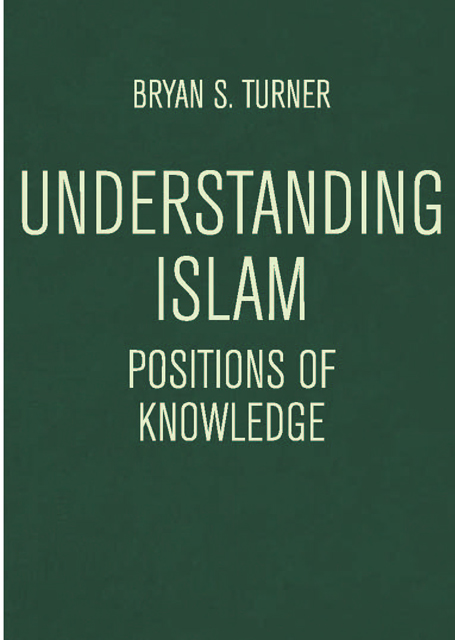Book contents
- Frontmatter
- Contents
- Acknowledgements
- Introduction: What is Understanding?
- 1 The Changing World of Islam
- 2 Insiders and Outsiders
- 3 The Rise of the Sociology of Islam
- 4 Postmodernism, Globalisation and Religion
- 5 Orientalism and Islam
- 6 Islamophobia
- 7 Feminism, Fertility and Piety
- 8 The Problems of Positionality
- 9 The Possibility of Dialogue
- Index
8 - The Problems of Positionality
Published online by Cambridge University Press: 13 April 2023
- Frontmatter
- Contents
- Acknowledgements
- Introduction: What is Understanding?
- 1 The Changing World of Islam
- 2 Insiders and Outsiders
- 3 The Rise of the Sociology of Islam
- 4 Postmodernism, Globalisation and Religion
- 5 Orientalism and Islam
- 6 Islamophobia
- 7 Feminism, Fertility and Piety
- 8 The Problems of Positionality
- 9 The Possibility of Dialogue
- Index
Summary
Introduction: Who Has Authority to Speak?
Many of the issues about positionality were explored in Chapter 2 through Robert Merton’s discussion of the insider– outsider problem in American sociology with special reference to research on black American communities. However, the arguments in this volume about the history of Western responses to Islam are now rehearsed in contemporary debates, not under the insider–outsider distinction, but under the notion of ‘positionality’. The driving issues behind this notion include gender and race, namely that scientific knowledge has been dominated historically by privileged white males. It is argued that sociologists have overlooked the consequences of colonialism on social theory (Bhambra and Holmwood 2021). This idea about positions of knowledge has gained currency especially in ethnographic and qualitative research, where the researcher’s own position is seen to be crucial in his response to the world in which he is positioned. For now, I shall continue to refer to ‘he’ rather than ‘she’, because most of the criticism has been focused on male researchers and to some extent more so for anthropologists than for sociologists for reasons that will become obvious shortly. The whole issue of positionality, and indeed the various arguments presented in this volume, ask the ultimate question: who has authority to speak? Has this obvious fact ever been seriously disputed in the social sciences? The unfinished debate about verstehen can be seen as the entrée into questions about positionality. However, we might date the contemporary approaches to the subject with the emergence of subaltern studies that was specifically connected with the article by Gayatri Chakravorty Spivak (1988) titled ‘Can the subaltern speak?’ in which she examined the subordination of voices at the periphery. The whole issue of positionality, and indeed the various arguments presented in this volume, hinges on power and authority. While accepting the challenges presented by positionality, I argue that sociology has to defend the search for objectivity in its research, and ‘objectivity’ implies also ‘universality’.
The notion of positionality in anthropology first emerged as a critique of research on aboriginal cultures, where the ‘subjects’ were either objects of research without a voice of their own or they were research assistants to anthropologists whose role was to translate and explain.
- Type
- Chapter
- Information
- Understanding IslamPositions of Knowledge, pp. 151 - 171Publisher: Edinburgh University PressPrint publication year: 2023

